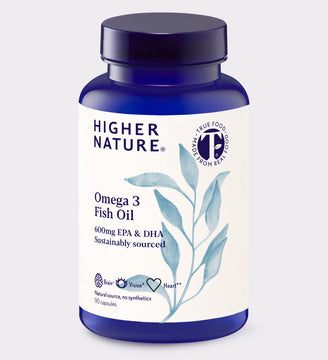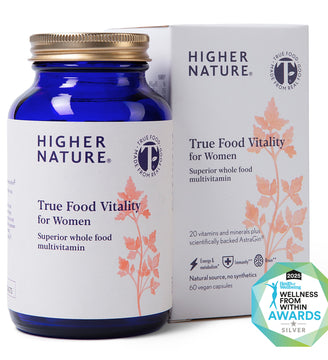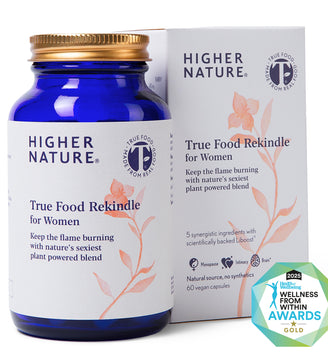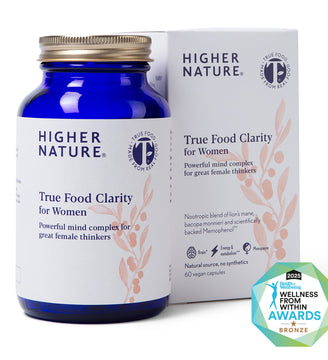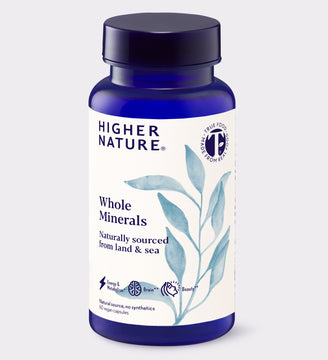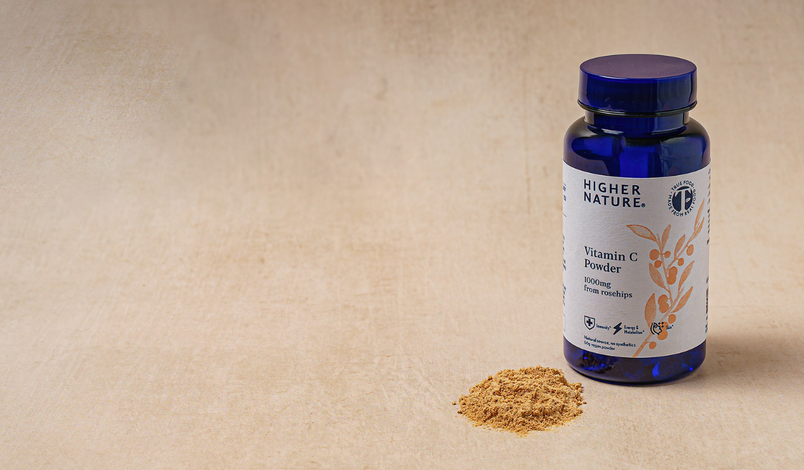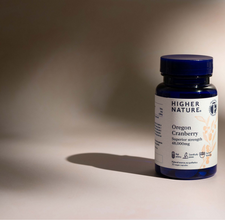
Vegetarian or vegan? Green and healthy
Higher Nature Nutrition Team
If you’re a vegan or vegetarian, it’s important to make sure you know the nutritional essentials for a healthy diet. Vegetarian and vegan diets can be incredibly healthy. But being a vegetarian or vegan is much more than simply cutting out meat. To ensure your diet is balanced and healthy, it’s important to know the common shortfalls.
Protein
Protein is essential for countless body functions, including growth and repair of tissues. Complete proteins (e.g. meat, fish, dairy and eggs) are those which contain all eight essential amino acids the body needs. While soy, spirulina and quinoa are complete protein sources, the majority of plant foods are incomplete. Therefore, to ensure sufficient quality protein, include a good variety of different protein-rich foods daily (e.g. pulses, beans, grains, nuts, seeds and leafy vegetables). If you feel your diet is lacking, try adding a scoop of hemp protein powder (a complete protein source) to your morning shake or porridge.
Pump up the iron
Inadequate dietary iron can reduce the red blood cells’ ability to transport oxygen and can lead to anaemia and fatigue. This is more of an issue for growing children and women of childbearing age. Boost your levels with the following foods and combine with vitamin C to help absorption (e.g. a piece of fruit): chick peas, bran flakes, spinach, kale, baked beans, molasses, dried figs and apricots.
B12: the missing link
Another nutrient needed for healthy red blood cells is B12 – also important for a healthy nervous system. Present in dairy and eggs, it is not readily absorbable in plant foods, so vegans will need to supplement daily.
Help from the sea and sun: iodine and vitamin D
Iodine is essential for a healthy thyroid gland. Low thyroid function can result in lethargy and weight gain. As iodine is mainly found in seafood, vegans and some vegetarians can be at risk of deficiency. You can find it in seaweeds, eggs and dairy products or take a kelp-based supplement. Vitamin D can be a concern for vegans as the main dietary sources include dairy and eggs. Make sure you spend time outdoors in the sun and include a vegan vitamin D supplement. Taking a multivitamin and mineral formula can help ensure sufficient calcium and other minerals too.
Get the fats in
We all know we need the essential fats omega 3 and 6. However, the best dietary source of omega 3 is oily fish. In addition, as vegan/vegetarian diets can be high in grains (rich in omega 6), the ratio between omega 6 and 3 can become imbalanced. There are vegan/vegetarian sources of omega 3 (e.g. flax seed, hemp protein, walnuts, pumpkin seeds), but, as these are not as easily utilised by the body, it is important to ensure your diet contains only healthy fats (no trans-fatty acids synthesised for margarines and processed oils) and adequate levels of vitamins and minerals to ensure efficient conversion to EPA and DHA.
Coconut Oil is a great addition to a vegetarian, vegan or raw food diet. It provides medium chain fatty acids which are easily digested and are used directly for energy, rather than being stored as fat. Coconut Oil is also a major source of the antimicrobial fatty acids, lauric acid and octanoic acid.
Coconut Oil is a great non-dairy alternative to butter or margarine and can be spread directly onto crackers. Another benefit of this versatile oil is that is has a high smoke point, making it a very stable oil for cooking as it can be heated to a high temperature without forming harmful trans-fats. Virgin Coconut Oil can also add a delicious coconut flavour to cooking, making it perfect for cakes or stir fries. Or if you prefer not to have the coconut flavour, choose an aroma-free version which has all the benefits of virgin coconut oil without the coconut taste.


